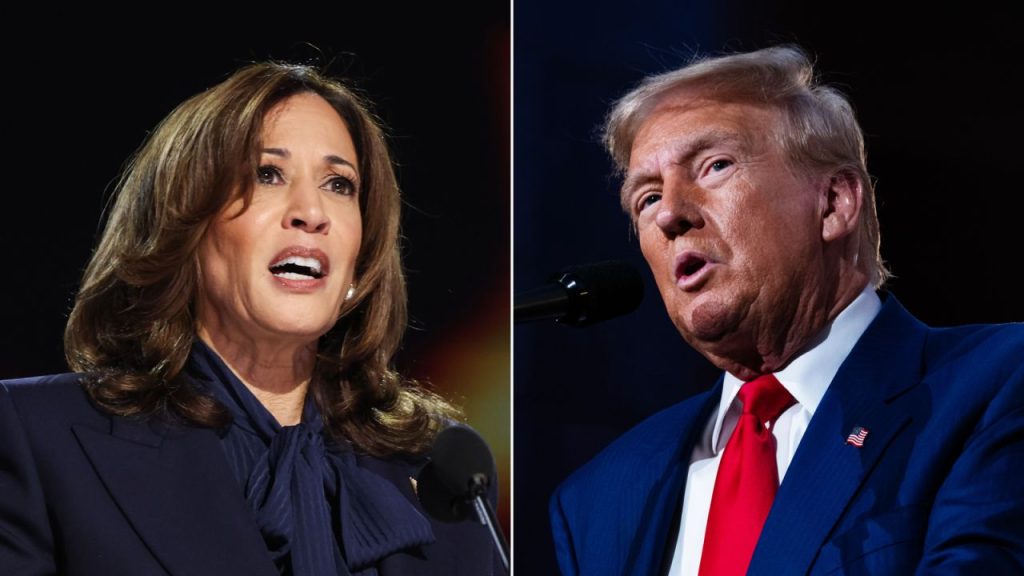
Kamala Harris is set to face a defining moment in her political journey this Tuesday as she engages in a debate with Donald Trump, widely regarded as one of the most formidable political adversaries of our time.
The 2024 election saw a dramatic shift after President Joe Biden’s poor debate performance against Trump in June, which led to his decision to end his reelection campaign. Harris has since revitalized the Democratic campaign, reintroducing several key swing states into contention and rekindling hopes of a turnaround in a race that many believed was slipping away.
Despite her efforts to unify the Democratic Party, present herself as a voice of generational change, and close the gap with Trump in polls, Harris has yet to secure a definitive path to the 270 electoral votes required for victory. If the election were held today, Trump, who has weathered both an assassination attempt and numerous criminal charges, could still emerge victorious.
While presidential debates typically don’t determine election outcomes—despite the game-changing impact of Biden’s June performance—Tuesday night represents Harris’ crucial opportunity to make a compelling case against Trump’s potential comeback.
The debate in Philadelphia will test Harris’ rhetorical skills, which have been a point of contention throughout her vice presidency. Although she has had notable moments in debates and Senate hearings, she has occasionally struggled to provide clear, decisive answers under pressure. Her limited media exposure, including just one major interview since becoming the Democratic nominee, raises the stakes for her performance in this singular debate with Trump. This will be Harris’ first debate since her 2020 encounter with former Vice President Mike Pence, while Trump has participated in presidential debates across three elections.

The debate will highlight a stark contrast between Harris and Trump. As Harris aims to become the first Black woman and South Asian president, she will face a rival known for his aggressive tactics and his history of using racial and gendered rhetoric for political gain. Trump has previously questioned Harris’ intelligence and race and used social media to spread sexual innuendo about her. Harris appears determined to avoid engaging with Trump’s provocations, dismissing his rhetoric as a “tired playbook” in a recent CNN interview.
Harris has less high-level political experience compared to Hillary Clinton in 2016 or Biden, who both faced Trump in previous debates. Some Democrats even questioned her suitability as a post-Biden leader. However, Tuesday presents an opportunity for Harris to demonstrate her political prowess and set a decisive tone for the final stretch leading up to November 5.
With her campaign focused on minimizing errors and limiting unscripted public appearances, this debate represents a high-stakes moment for Harris. A misstep could pave the way for Trump—a former president who attempted to undermine U.S. democracy in 2020—to potentially reclaim the presidency, driven by his promises of “retribution.” The urgency for Democrats was underscored recently when Trump vowed to prosecute election officials and political opponents he accuses of “cheating,” continuing his false claims of voter fraud in 2020.
Despite the pressure, Harris has opportunities to make a significant impact. If she can withstand Trump’s onslaught, she could use the debate to appeal to undecided voters in crucial swing states. A New York Times/Siena College poll released this weekend revealed that 28% of likely voters want to learn more about Harris, compared to only 9% for Trump, indicating potential for growth.
Harris has shown a more pronounced focus on economic issues compared to Biden, addressing concerns about high grocery prices, supporting first-time home buyers with downpayment assistance, and aiming to make rent more affordable. Additionally, she presents an alternative to the chaos and political turmoil of Trump’s first term, which his recent statements suggest would only intensify in a second term.
To succeed in the debate, Harris must navigate several challenges:
- Balancing Rebuttals and Messaging: She needs to counter Trump’s anticipated attacks and falsehoods while highlighting her own policies. Harris expects Trump to rely on past tactics of falsehoods and personal attacks and plans to focus on her vision for the country.
- Addressing Contradictions: Harris must reconcile her campaign’s promise of change with her association with an administration that Trump blames for economic issues, such as high prices. She must effectively argue her case on key issues like the economy and immigration, where she often trails Trump in polls.
- Defending Policy Shifts: Harris must also address any accusations of policy flip-flops from her time in the 2019 Democratic primary, such as her evolving stance on fracking and border issues. Trump’s team has used these shifts against her, questioning her consistency.
Trump’s team has been openly critical of Harris’ debate skills, anticipating a performance reminiscent of her earlier vice-presidential debates. Yet, Anita Dunn, a former senior adviser to Biden, believes Harris will be well-prepared for Trump’s aggressive tactics. Dunn emphasized that Harris must stick to her game plan and present a coherent message to the American people, regardless of Trump’s tactics.
With such high stakes, the debate could become a pivotal moment for Kamala Harris, offering her a chance to solidify her position and potentially reshape the race leading up to the election.







